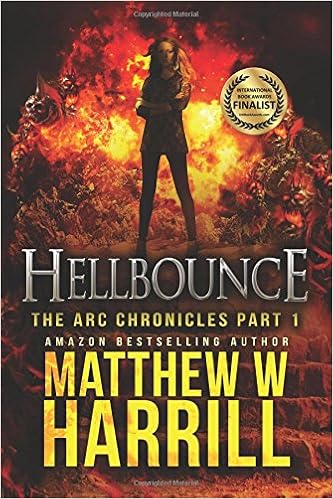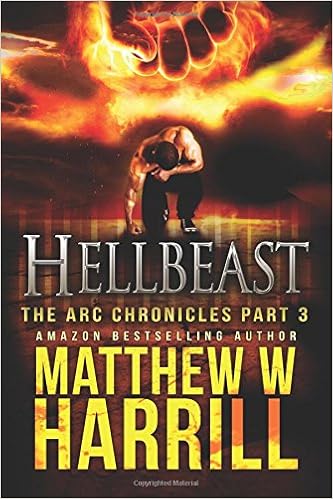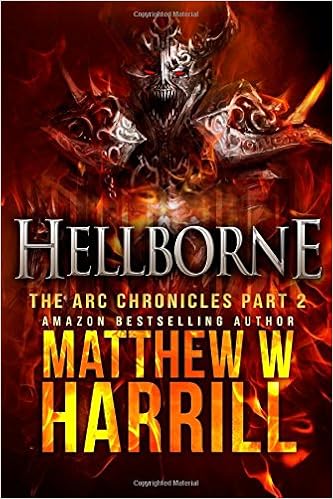I'm totally stoked to spotlight an award-winning horror and speculative fiction writer Matthew Harrill, author of a ARC Chronicles. The content is as fierce as the covers.
________________________
MJN: You
cite H. P. Lovecraft as one of your inspirations, which is not surprising for a
horror writer. Everyone borrows something different from Lovecraft, whether it
be narrative style, point of view or the way he tackled certain archetypal
fears. Which element of his craft did you incorporate into your own works?
MH: Initially
the intention was to create a modern day homage to Lovecraft, a very modern
gothic horror if you will. There is a feeling I get when reading Lovecraft. It
is in a strange way very comforting as if intruding upon another’s dream. I
think that is what I have drawn on most from HPL – allowing people to see the
vision in my head, described as well as I can make it (though there is always
room for improvement). Other than that feeling, while my intention was to be
very specific with Lovecraft in mind, my story very quickly found a voice of
its own and moved in a different direction.
MJN: The
covers on your ARC chronicles are very vivid, stylized and uniform - gorgeous
and professional. The color scheme is red, yellow and black. Those are pretty
traditional colors one would associate with hell. Have you read any books on
demonology?
MH: No
books specifically. Yet there is a lot of information on the internet because
nowadays, everybody has a voice and a website. I purposefully chose demon names
to use that aren’t necessarily the most obvious. Everybody has their own take
on Lucifer, or Satan, but not everybody has much of an idea about say Rosier,
or Iuvart. Finding demonic names with lesser descriptions also allows me more
creativity since they are less ingrained in to popular culture and I can
therefore influence the perception.
MJN: In Hellbounce, the
protagonist Dr. Eva Ross is a prison psychologist. In my experience, people
don't become psychologists on a whim. There must be something in their past -
or even past life, if you believe in such things - that seeks them to
understand the human soul at a higher level. And yet, psychology is a very
regulated and institutionalized field full of bureaucracy. Paperwork and
protocol gets in the way of the exploration.
MH: True,
but I have a degree in geology and I implement stock options and shareplans for
multinational clients. Sometimes your life is planned out, it seems, and
sometimes you just fall into a career. Eva could just as easily been a janitor
in a prison hospital, but it doesn’t read as well in the blurb : )
MJN: Your
ARC Chronicle is a trilogy. It's actually a challenge to write a trilogy and
not make the second book come across as the proverbial "middle
child". Sometimes, writing a sequel is more challenging than writing the
first book in the series. Did you encounter any specific challenges while
writing Hellborne?
MH: Initially
Hellborne was just a vehicle to drive
the plot to Hellbeast, the novel I
really wanted to write. But being an uber-plotter, it didn’t take me long to
work out a story of its own. I realised I couldn’t just trek my way around
America, and since my characters ended the first book in a different country, I
chose to take the story on from there. I find the research for books to be
quite a revelation, pulling detail on the most amazing of places as I work on
my notes. If anybody told me back in 2011 that within a year I would be
researching an island in the Baltic that stands only feet above sea level and
supports an active population, or that I would be researching ways to break and
shut down the Large Hadron Collider (particle accelerator) at CERN on the
Franco-Swiss border, I’d not have believed them for a second. Probably the
biggest challenge was that as a new writer, the release for Hellborne was quite
underwhelming. Courtesy of a chaotic publisher.
MJN: You are
an Amazon bestselling author, so I congratulate you on your success. Do you
believe that winning an award was instrumental to generating more sales, or
would you say that both your popularity and your acclaim are direct result of
the quality of your work?
MH: I
think the work speaks for itself. I have never asked anybody to be any less
than honest when reviewing my books, and it’s worked out pretty well so far.
The awards were really a stake in the ground, something done by my mentor David
Farland, to see where I was and if my work was comparable to that of my peers.
I ranked well in every competition I entered. OK I didn’t win, but it’s
encouraging to see your name up there. Most of my sales have come from
interaction with people on social media. One day I would like to be able to say
my reputation precedes me, but if I have to take on the literary world one
reader at a time, then so be it.



No comments:
Post a Comment